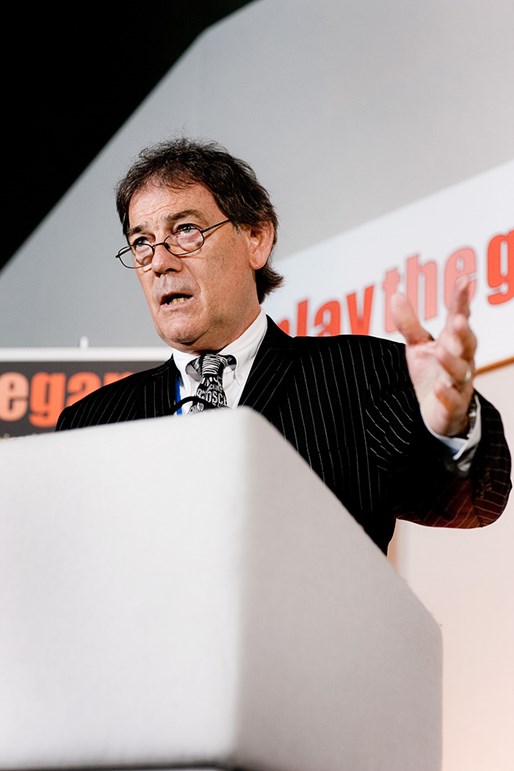Doping enforcement: has it gone too far?
This was one of the questions raised when a world-class group of doping experts and policymakers engaged in a lively debate on anti-doping policies.
According to Yves Kummer, President of the European Elite Athletes’ Association, the conflict between doping enforcement actions and human rights is now tilted in favour of the former. Europe’s sportsmen and woman, he pointed out, are citizens and employees residing in the EU, and should therefore be protected by EU law.
However, he told the Play the Game conference, many of his athletes feel they are not protected by Europe’s tough data protection and personal privacy laws. In theory, athletes voluntarily relinquish such rights to aid the fight against doping, he said - but in practice they have no alternative than to comply with restrictive “whereabouts” rules
“Pedophiles and other criminals on probation enjoy wider privacy rights than athletes covered by the whereabouts rule”, he said. “We allow ourselves to be tested, but this should not give the authorities carte blanche”.
“If you don’t comply you can’t compete”
His organization has received complaints from numerous athletes, he said, who argue that that the current tracking system is so complicated and restrictive that they are unable to lead normal lives. However, when they complain, the standard answer is “if you don’t comply you can’t compete”.
Italian anti doping campaigner Sandro Donati spoke of the connection between cocaine and sports doping. To combat drug trafficking, he said, it is first necessary to define the amount of drugs on the market. However, official UN figures vastly underestimate the global cocaine supply, he said.
Cocaine, Donati pointed out, has more in common with performance-enhancing drugs used in doping than heroin. As such, it is popular among athletes, “An athlete who uses cocaine in his personal life is not a “normal athlete”, as it detrimentally affects performance, Donati said. “If an athlete is using cocaine he is probably doping too”.
Cocaine users - probably doping too
The trafficking of performance-enhancers and cocaine is often carried out by the same people, he said, and smuggling rings sometimes involve athletes themselves. In order to address the problem effectively, he said, accurate data is needed. Inaccurate data severely distorts vital figures such as the money involved and the relationship between supply and demand.
David Howman, Director General of the World Anti Doping Authority (WADA), gave a rundown of his body’s achievements in its first ten years of existence. During this time, he said, WADA has made significant inroads in the fight against dope cheats. Out-of-competition testing has become standard practice, he said, and the WADA code has been adopted and accepted by the IOC and most international sports federations.
WADA - for the benefit of clean athletes
Howman understood that some athletes felt disenfranchised by the strict testing structure, but he added that WADA’s Athletes' Committee provides sportsmen and women with an independent voice. “WADA exists for the benefit of clean athletes”, he said.
Herbert Ram, CEO of the Netherlands Anti Doping Authority, spoke of the conflict between democratic values and current anti doping policies. A “natural tension” exists between safeguarding democratic rights and the fight against doping, he said. Protests from athletes’ organizations over data protection issues are increasing, he pointed out, and conflict with medical community remains a sensitive issue.
Transparency and open dialogue are vital for any body engaged in drug testing policies that some see as intrusive, he added.






